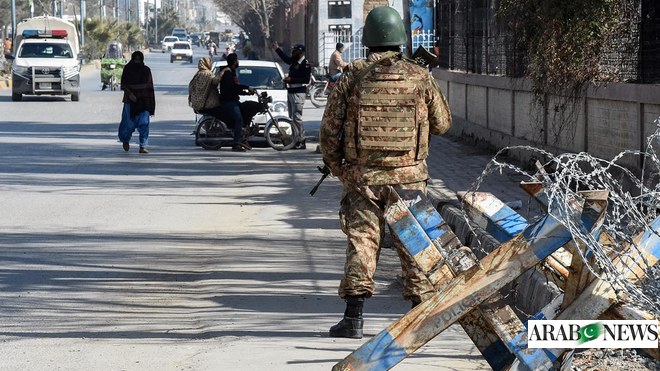Sunday cricket is refuge for Pakistani, Indian and Sri Lankan migrants in Lebanon
BEIRUT: In a Beirut parking lot, migrant workers cheer on their teams playing in a cricket match, a moment of respite in crisis-hit Lebanon where working conditions are often harsh.
“Sundays are very happy. We eat together, we laugh together,” said Pradipa Silva, 42, a cricketer from Sri Lanka, as he and his teammates prepared and shared coconut rice and other traditional dishes nearby.
“The work is very exhausting” and workers are stressed and anxious, said Silva, who works six days a week as a housekeeper to help pay for her daughter’s college tuition back home.
Every Sunday, players, mostly from Sri Lanka but also from the Philippines, India and Pakistan, gather in Beirut’s Ashrafieh district to play cricket, a sport little known in Lebanon.
Migrant workers are employed under Lebanon’s controversial “kafala” guarantee system, which rights groups have repeatedly criticized for allowing a range of human rights abuses.
Hundreds of people gathered on May 19 for a tournament that featured traditional food stalls, a DJ playing Bollywood hits and other music, teams from the British and Sri Lankan embassies, and young Syrian refugee players.
Iris Sagario, from the Philippines, ran onto the field as a member of the Roaring Lions women’s team wearing an orange and blue shirt with her name printed on the back.
“I love cricket,” said the 43-year-old housekeeper, “and I look forward to playing every Sunday,” her only day off.
After winning the match, Sagario’s team cheered, hugged and high-fived each other – and then won the women’s trophy.
The International Organization for Migration reported that there were more than 160,000 migrants from 84 countries in Lebanon last year.
Amid rising tensions over Israel’s war with Hamas in the Gaza Strip, clashes between Hezbollah and Israeli forces and daily shelling in southern Lebanon, some foreign embassies have advised their nationals to leave the country.
“I was worried at first,” but “my husband (employer) assured me everything was OK,” said Sagario, who was in Lebanon in 2006, the last time Israel and Hezbollah were at war.
“I’m staying here because I don’t know what I’ll do when I go back to the Philippines. I want to help my family financially,” she said.
Curious passersby sometimes watched the game through the collapsed stone wall.
Tournament organizer Fernando Sugath, 52, of Sri Lankan origin, said the car park some of the players have used for about 20 years is called the “Lady of Lebanon” – a reference to the famed Lord’s Cricket Ground in London known as the “home of cricket”.
Sugas said games in the car park were suspended for five years because players could no longer access the lots, but would resume in 2022.
His team changed the name of their club to St. Joseph’s Cricket Club in honour of the nearby church that helped them get back to the area.
Migrant workers at cricket matches “are very lucky because we have good employers who give us Sundays off,” said Sgath, who first came to Lebanon in 1996 as a cleaner and now works as an office worker.
Rights groups have long criticized Lebanon’s restrictive sponsorship system, saying it encourages exploitation and leaves migrant workers at the mercy of their employers, amid persistent reports of physical and sexual abuse, unpaid wages and long working hours.
Sugas called on all employers to give their workers “at least one or two hours off on Sundays, to give them freedom, to allow them to use the phone, to call their families.”
When the boys’ game began, sluggers smashed balls into the trees along the parking lot while fielders desperately tried to catch them.
Majid Satti, 39, from Pakistan, captained the Eleven Brothers team, made up of five Pakistani and six Indian players, which finished as runners-up in the men’s tournament.
Relations between the two countries have long been tense, but “there are no problems. We are all like brothers here,” said Satti, a concierge who has lived in Lebanon for 15 years.
India’s vice-captain, Raju Singh, 41, said the players “never think about politics”.
Singh, an electrician, wore the team’s traditional white cricket uniform, long white trousers and white shoes and was one of those responsible for the coin toss to decide which team would field or bat first.
The Lebanese 500 lira coin he uses was worth about 35 US cents until 2019 but is now worth less than one cent due to Lebanon’s economic collapse, which has led to some migrant workers being abandoned by their employers and others being forced to leave the country.
Singh said he loves cricket and travels about 30 kilometers (20 miles) every Sunday to play in matches.
“When I’m done, I go home and wait for next Sunday,” he said.

